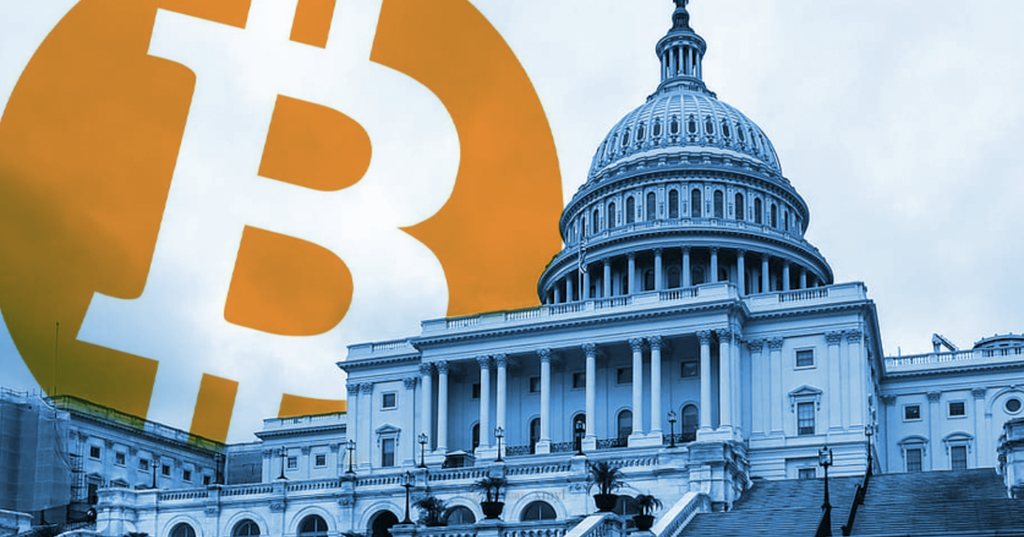Several federal entities in the United States, including the SEC, CFTC, IRS, FinCEN, and Congress, are vying for authority over cryptocurrency oversight. However, the lack of clear regulations has led to confusion within the industry, prompting calls for more precise guidelines. It is a mess.
At the same time, states such as New Jersey and New York are making advances to establish their crypto regulatory frameworks. A move other states in the US are likely to follow with the ongoing, messy situation at a federal level.
If states successfully legislate crypto, it will allow businesses in the blockchain and related industries, such as online gambling, to move forward and build sustainable businesses. And effectively enjoy higher tax revenues, more job opportunities, a safer environment for persons engaged with cryptocurrencies, and adequately educate about the benefits and dangers of the industry.
Washington Struggle to Regulate Crypto
On the one hand, the Biden administration is reluctant to impede cryptocurrency transactions, fearing that such restrictions could hinder the growth of a potentially lucrative industry. On the other hand, it is determined to continue its efforts to combat illegal cryptocurrency payments and address its role in facilitating cybercrime.
Over the past year, the US government’s approach to striking a balance between fostering entrepreneurial cryptocurrency ventures and curbing criminal activities involving cryptocurrencies appears to have shifted. This change can be attributed to the inherent volatility of virtual currencies and the increasing concerns surrounding the illicit activities that sometimes accompany digital assets.
Governing Bodies Faced Similar Challenges When Legalizing Online Gambling
New Jersey is a state that embraces the adoption of new technology. A recent example is their willingness and resolute approach to online gambling legislation. NJ pioneered the industry ten years ago by allowing online casino companies to operate, and in 2018 they were the first state to legalize online sports betting. Today, New Jersey’s online gambling market is the most progressive in the country, with regulated online gambling sites that take adequate responsibility for the potential risks of playing in online casinos. The local governing body is displaying the right kind of mindset to influence the adoption of crypto.
The example of the online gambling industry is relevant because it balances similar opportunities and challenges as the crypto industry. The online gambling industry is also known for illicit activities and potential social ramifications. Something that the local governing body has managed well and continues to optimize for. They also succeeded in influencing other states to follow their lead.
New Jersey Is Now Moving Forward With a New Crypto Bill
New Jersey’s proposed crypto regulatory framework builds upon New York’s BitLicense requirements. The “Digital Asset and Blockchain Technology Act” seeks to address the challenges faced by the industry, including custody concerns and the high-profile instances of fraud and bankruptcies in 2022.
The legislation, which is more comprehensive than its New York counterpart, would require businesses engaged in digital asset dealings to obtain a license. While this broad scope may present compliance challenges for some companies, it aims to enhance investor protection and foster a transparent and secure crypto environment.
The requirements are similar to online gambling regulations because companies must obtain a license. They are held to high regulatory standards and accountable if they fail to comply—at worst, result in the closure of business and heavy fines.
The act could pave the way for legal crypto transactions by establishing a regulatory framework for digital assets and blockchain technology.
There Are Always Going To Be Risks, but Inaction Is Worse
Regulations on a state level would provide much-needed guidance for businesses that deal with digital assets.
It would also provide transparency and advice for investors and consumers engaging with companies dealing with crypto. When every taxi driver and everyone’s grandma is talking about buying Bitcoin, something is typically amiss, with a table set for potential disaster.
Similarly, during the financial crisis of 2008, everyone was a real estate investor. We all know how that turned out. In both cases, retail investors do not understand what they are doing. The financial crisis also underpinned how difficult it is to regulate certain business areas—regulation in the banking sector has always been controversial.
The first bank was established in 1791, when we saw the first forms of regulations in the financial sector. Despite over 200 years of progress, financial instruments are often complex enough to make it difficult for regulators. But it does not prohibit banks and financial service companies from offering, unknowingly, sometimes harmful services. The net result of the banking and financial system is positive. There is no reason the crypto industry can’t achieve success under strict but fair regulations that minimize potential harm.
Transparent regulations are a better option than the current situation, where Americans can still deal with cryptocurrencies under less-than-ideal conditions, usually leaving them without a safety net.
New Jersey’s proposed Digital Asset and Blockchain Technology Act may face short-term challenges due to the volatility and uncertainties in the crypto market. However, NJ’s history of progressive online gambling legislation and its commitment to technological innovation make it well-positioned to embrace cryptocurrencies when conditions are favorable. Fingers crossed that the bill is passed by the state senate soon.
Credit: Source link










































